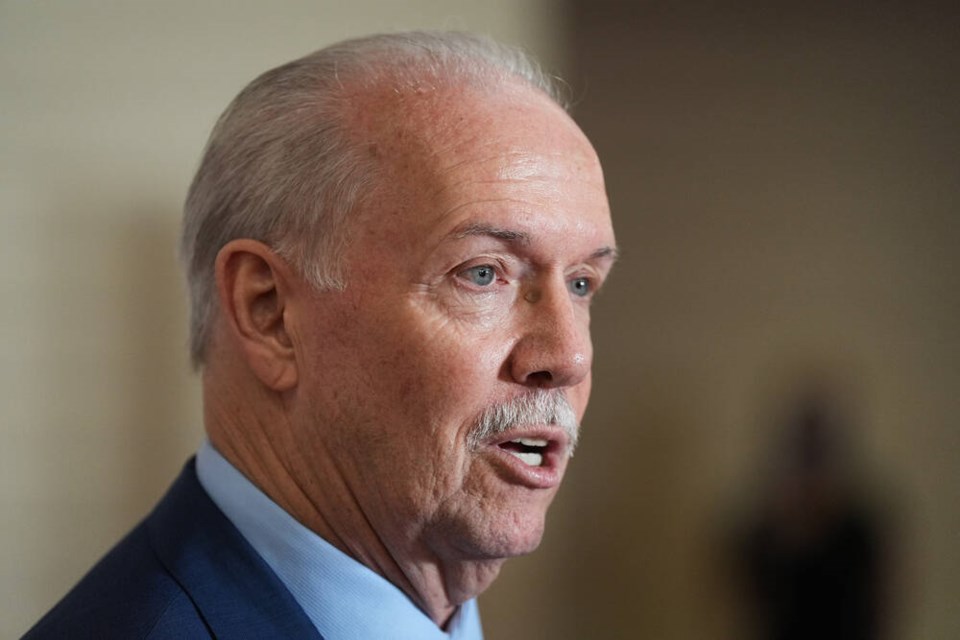The NDP is engaged in finding a new party leader and, consequently, a new premier after Premier John Horgan announced his retirement.
Horgan and the current party leaders have required all prospective candidates to pay a ‘candidacy fee’ of $15,000, a very large fee for a party which claims that it is a ‘social democratic party’ whose members are encouraged to participate fully and equally in party activities, including being able to run for positions in their local constituency associations, or for MLA and even for party leader.
It also claims to be a party of ordinary citizens, working people and their families.
Above all, this must be done democratically and equally, not relying on corporate sponsorship as some Liberals, or on monied oligharchies such as some Conservatives.
The sum of $15,000 is not a small candidacy fee for most of those who identify with the NDP. Why, then, demand such an egregious fee?
It turns out that the party has also decided that individual candidates cannot pay that fee themselves, but must fund-raise the amount. The apparent reason is to demonstrate that the candidates have a high level of support among the rest of the NDP membership. and as a means to eliminate all but serious candidates.
This may seem reasonable to some, but the question is: Is it still egalitarian and democratic? How many NDP members – even among those who have the requisite qualifications and the desire – can meet this stiff candidate fee?
Up to this point in the race there is only one candidate who has accepted the challenge, and that is David Eby, one of the current leaders of the party who has built a distinguished record.
The many other potential candidates mentioned in the press have all backed off. And Eby already has the support of the majority of the NDP MLAs and caucus members. It will be difficult for any other member of the current NDP leadershp to beat that.
And the rules of the party also say that if there is only one candidate standing at the end of the campaign, then that candidate will be acclaimed. There will be no vote among the membership. No voting will be needed. Is that also democratic?
If there is an NDP member who does not hold a position in the leadership, and who has both the qualifications and desire for the position? One of the ordinary NDP citizens, working people and families? What are that person’s chances in the current situation?
That person would also have to fund-raise the $15,000 fee, a much more onerous job than for the current leader with so much support from the current party cadre.
If that leadership cadre locks itself behind their fellow leader, meeting the fee would not be too difficult.
But our ‘ordinary’ NDPer would face fund-raising at one of the toughest times in recent decades: in the midst of an inflation, which experts say will last for at least another year, and in which other ordinary NDPers’are facing a seriously rising cost of living combined with wage and salary levels that do not make up the difference between succeeding in today’s economy and falling further and further into debt.
To avoid a coronation of a lone candidate for NDP leader and premier, the NDP must have other candidates, either members of the leadership cadre or ‘ordinary’ NDPers. Only then can the party members vote to select their leader.
And there is another reason why it would be democratically desirable to have such ‘ordinary’ members in the race. Many members of the NDP have supported Horgan, judging him to have been both congenial and wise.
But many other members have seen the party move further and further to the right, akin to the Democratic Party south of the border, preferring extractive policies (water, forestry and LNG development, etc.) over social, family and environmental policies.
To deal adequately with the most current and problematic issues facing the party, some ‘ordinary’ member, or members of the NDP must step forward to take up the challenge, difficult as it may be, since the party invoked its excessive and undemocratic $15,000 fee.
Fund-raising for such members has been made much harder. But, only then can party members fully and adequately debate the issues, and vote for the candidate of their choice.
Members of the NDP deserve the chance to democratically and equally control the future direction and course of their party.


